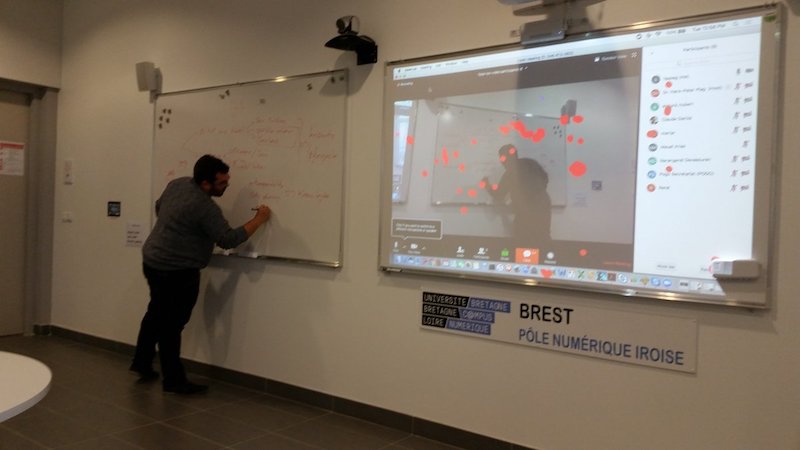ODYSSEA partner Sergio Martinez Navas, Principal Researcher at Leitat gave a presentation at the IEEE Ocean Engineering Society’s Workshop on Plastics in the Oceans, detailing how the observatory network being developed by the EU-funded ODYSSEA project will be used for monitoring marine plastics. The workshop took place at the Pôle Numérique in Brest, France.
The ODYSSEA observatories will employ SEA EXPLORER gliders moving at a speed of 1 knot through the surface of the waters, full water column and benthic zones, gathering data on various parameters, including microplastics, and will be mounted with a special microplastics detection device.

ODYSSEA project coordinator Prof. Georgios Sylaios prepared a presentation on how the project will tackle marine microplastics, detailing the technical aspects of the sensors, for use at the EU Urban Waste project conference held in Kavala, Greece in June 2018. There, Sylaios noted that roughly 60-80% of marine litter is now plastic, a result of the worldwide increase in the use of plastics over recent decades, with 322 million tonnes of plastic produced globally in 2015, up from only 1.7 million tonnes in 1950.
“Over the last ten years we have produced more plastic than during the whole of the last century,” Sylaios said, adding that 50 percent of the plastic we use are thrown away after just one use, and only five percent of plastics produced are recovered. “Waste plastics that do not enter appropriate reuse or recycling loops on land eventually are released into rivers and coastal waters,” Sylaios added, stressing that at present marine plastic pollution levels about one million sea birds and 100,000 marine mammals are killed each year by plastic litter in the oceans.
The Brest workshop brought together experts investigating the sources of plastics in the ocean and scientists and engineers focusing on existing and new observation technologies to detect and quantify plastics in the ocean, with the overall aim being “to create the relevant knowledge societal decision and policy makers need to address the challenge posed by plastic to human and non-human life,” organisers noted.
The main outcomes of the workshop will be a draft road map covering the next five years (2019-2023) and giving recommendations for detection and quantitative mapping of microplastics’ impacts on marine ecosystems, they added. The road map and workshop report are currently being prepared for publication. Workshop participants were also encouraged to submit manuscripts to the Spring 2019 theme issue of Earthzine, which will focus on “Ocean Plastic and Marine Debris.”

